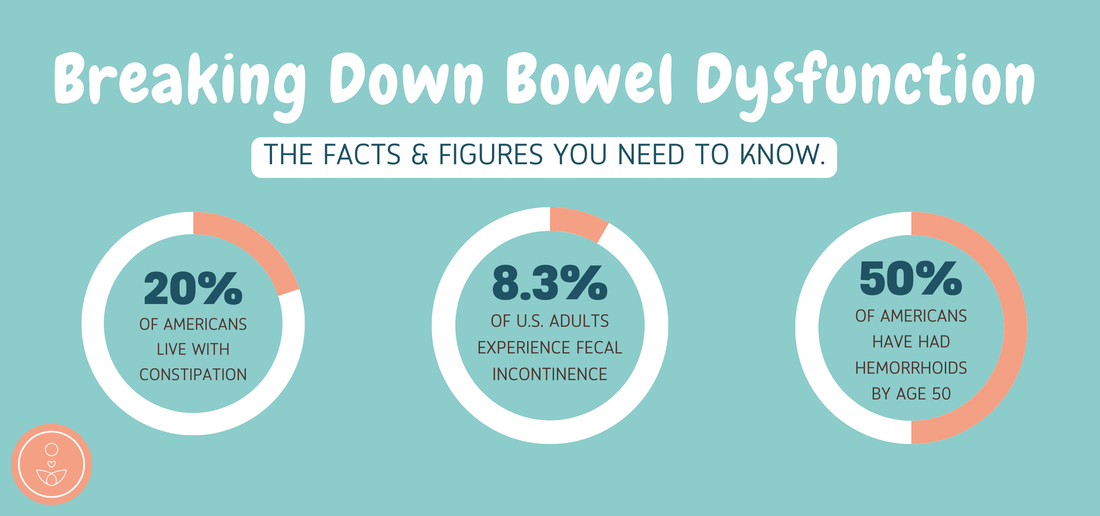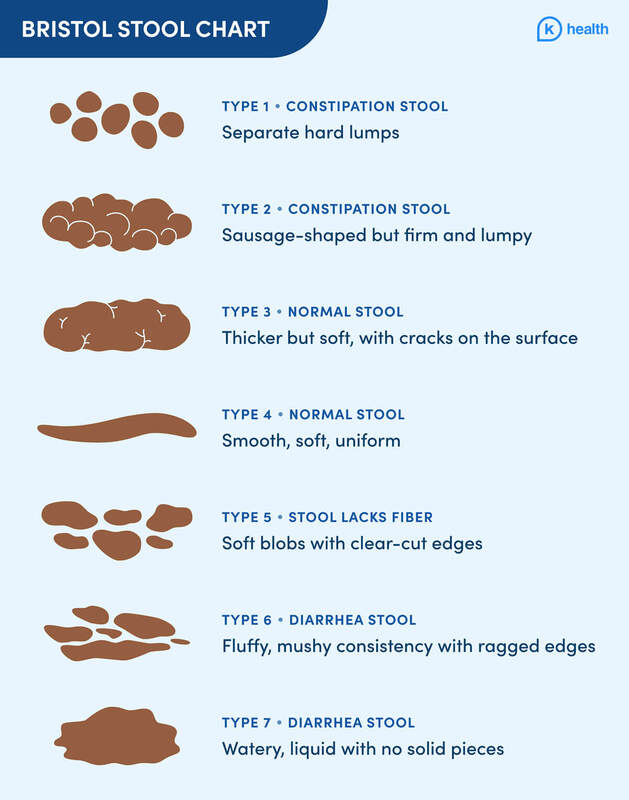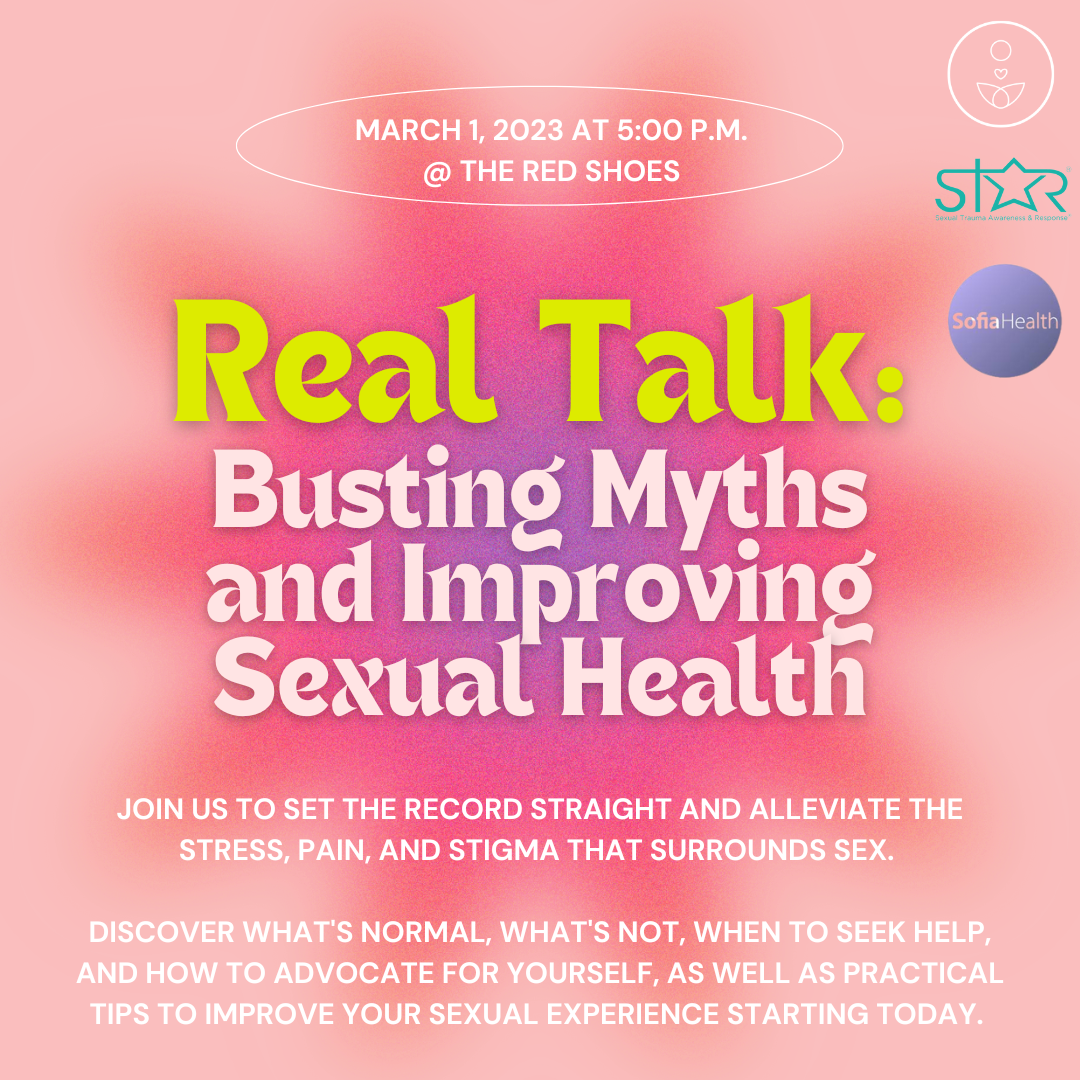|
Wait…That’s Not Normal?!
Now that we have a clear understanding of the bowels, how they function, and what’s considered “normal” when it comes to bowel movements (if you’re thinking “WAIT! What are they talking about?!” check out our last blog post for more information) it’s time to understand what’s NOT normal. There are symptoms that you might be experiencing without even realizing that they're symptoms because they've “always” been a part of your life or it happens to “everyone” in your family, or your mom told you “It’s just a part of getting older”. However, let's reiterate that just because it’s common, doesn't mean it’s normal! There is no reason for you to be struggling through your daily life with painful constipation, embarrassing fecal leakage, or gas that sneaks up on you. If you find yourself saying “This is totally me…” keep on reading! In this blog will be diving into the ins & outs of constipation, why you may be leaking stool, and the truth behind gas that slips out at the worst possible time. So, let’s get into it!
0 Comments
Do you go days between bowel movements? Do you find yourself constantly wiping or experiencing discomfort during bowel movements? Do you feel like you've tried every fiber supplement, laxative, and stool softener on the market without any relief? If you've exhausted all the usual remedies without success, it may be time to consider the possibility of a pelvic floor problem. Our clinic specializes in helping people just like you achieve optimal bowel function and reclaim their quality of life. The good news is that you don't have to suffer in silence. As experts in pelvic floor physical therapy, we're here to help you get back to feeling your best. Understanding what's normal and what's not when it comes to bowel function is the first step towards a happier, healthier life. So, let's get started on this journey together. The Land of Misconceptions As pelvic floor physical therapists, we know that discussing bowel movements can be an uncomfortable topic for many people. However, understanding how your bowels work and what's normal is crucial to maintaining good health. Unfortunately, there are many misconceptions about bowel function that can lead to confusion and unnecessary discomfort, leaving many people struggling with bowel dysfunction without even realizing it's a problem. One common misconception is that certain symptoms are less valid simply because they have always been present. This couldn't be further from the truth. If you are experiencing discomfort or irregularity with your bowel movements, it's important to seek help and understand what is normal and what isn't. How Do The Bowels Work? When you eat, food travels through your digestive system, breaking down and absorbing nutrients along the way. However, the journey from your mouth to your rectum isn't a smooth ride - it's facilitated by rhythmic waves called peristalsis. Peristalsis is the involuntary movement of muscles in your digestive tract that helps propel food along. These waves are regulated by your pelvic floor muscles, which control the opening and closing of your bowel. When your pelvic floor muscles relax, the muscles in your rectum contract to push stool out of your body. When your pelvic floor muscles contract, they close off the rectum to prevent stool from escaping until you're ready to have a bowel movement. Unfortunately, when your pelvic floor muscles aren't functioning properly, they can't regulate peristalsis effectively. This can lead to constipation, incomplete evacuation, and other bowel dysfunction. Luckily, pelvic floor physical therapy can help regulate peristalsis and promote healthy bowel movements. Pelvic floor therapists can provide you with exercises and techniques for your pelvic floor muscles, improve your bowel function, and help you regain control over your digestive health. What's Normal? When it comes to bowel movements, it's important to understand what's considered normal and what's not. Many people believe that having a bowel movement every day is a requirement for good health, but this is simply not the case. In fact, the goal is to have a bowel movement at least once every 24 hours, with a range of 12 hours on either side. This means that if you go twice a day, that's great, and if you go once every day and a half to two days, that's also fine. However, if you find yourself only having a bowel movement once every 4-5 days, it is definitely not normal and can negatively impact your digestion, nutrition absorption, and elimination moving forward. When you feel the urge to go, you should be able to wait around 20 minutes before going to the restroom without any accidents or close calls. You should relax your body, open your pelvic floor muscles, and allow your body to naturally expel the stool without force. If you are straining, pushing, or holding your breath to bear down, something is not right. A bowel movement should not be painful, and you should not experience bleeding, cracking, or hemorrhoids. How Many Times Should You Wipe? After your bowel movement is complete, your pelvic floor should close naturally, and you should only need to wipe 3-4 times. If you find yourself wiping excessively or needing to continuously wipe, it may be a sign of a pelvic floor dysfunction, such as an improperly closing sphincter. Not only can excessive wiping be uncomfortable and time-consuming, but it can also lead to skin irritation and other unwanted health issues. The Skinny on Gas Embarrassing gas accidents can be more than just an inconvenience. If you're struggling to control your gas, you're not alone. While it's normal to pass gas, it should be something that you can hold back and only release when you want to. It shouldn't slip out when you're sitting, standing, or exercising. What Should Poop Look Like? It's important to pay attention to the appearance of your stool as it can provide clues about your digestive health. Healthy poop should be smooth and snake-like in shape, with a medium-brown color, a type 4 on the Bristol Stool Chart. Factors such as your diet, hydration level, and medication use can impact stool consistency and color. Moreover, your pelvic floor muscles play a crucial role in bowel function. They should be able to accommodate all types of stool, whether it's small or large, hard or watery. The mu Image Credit : https://khealth.com/learn/bowel-movement/bristol-stool-chart/ In conclusion, understanding what is normal for your bowel movements is crucial to maintaining good health. If you are experiencing discomfort, irregularity, or pain with bowel movements, don't hesitate to seek help. A pelvic floor physical therapist can help you understand what is normal and work with you to promote healthy bowel function.
We'll be diving deeper into a range of bowel movement topics in our upcoming blog posts, including the skinny on constipation, the truth about laxatives and stool softeners, and our favorite tips and tricks for regulating your bowels. Be sure to stay tuned for more valuable insights and information. Sexual health is a fundamental part of our overall health and well-being. That being said, the topic of sexual health is often shrouded in myths, misinformation, and stigma. Lack of information and misconceptions around sex oftentimes cause people to miss out on the joy and pleasure that sex can and should bring. The good news is that you don't have to suffer in silence. Take the first step to taking back control of your sexual health by attending our FREE, empowering, and informative mini workshop titled "The Real Talk: Busting Myths and Improving Sexual Health". This workshop is designed to provide you with accurate information, practical tips, and resources to help you enjoy a healthy, safe, and fulfilling sex life. The workshop is open to everyone, and you are encouraged to come as you are. You do not have to be an expert in sexual health or have any prior knowledge of the subject to attend. The workshop is tailored to suit everyone's needs, and you are welcome to ask any questions you may have.
During the workshop, you will learn about what's normal, what's not, and when to seek help. You will discover practical tips on how to advocate for yourself and communicate with your partner to ensure a safe and enjoyable sexual experience. Additionally, the workshop will also cover ways to address and alleviate sexual stigmas and shame, which can be a significant barrier to discussing sexual health. The goal of the workshop is to provide you with accurate and helpful information that will empower you to make informed decisions about your sexual health. The workshop will be led by experienced sexual health professionals from several different organizations who will answer your questions and provide you with practical tips to improve your overall sexual health. Restoration Health Collective, STAR (Sexual Trauma Awareness and Response Center), and Sofia will all be in attendance and have representatives present to answer any and all questions. By attending the workshop, you will have the opportunity to connect with others who may be going through similar experiences as you. You will also receive FREE giveaways and refreshments to make your experience more enjoyable. Don't let myths, stigmas, and lack of information about sexual health hold you back any longer. Join us for this free, empowering, and informative mini workshop on sexual health, and take a step towards a healthy, safe, and fulfilling sexual life. WHERE : The Red Shoes on Government , 2303 Government St, Baton Rouge, LA 70806 WHEN: March 1. 2023 @ 5:00 P.M. |






 RSS Feed
RSS Feed